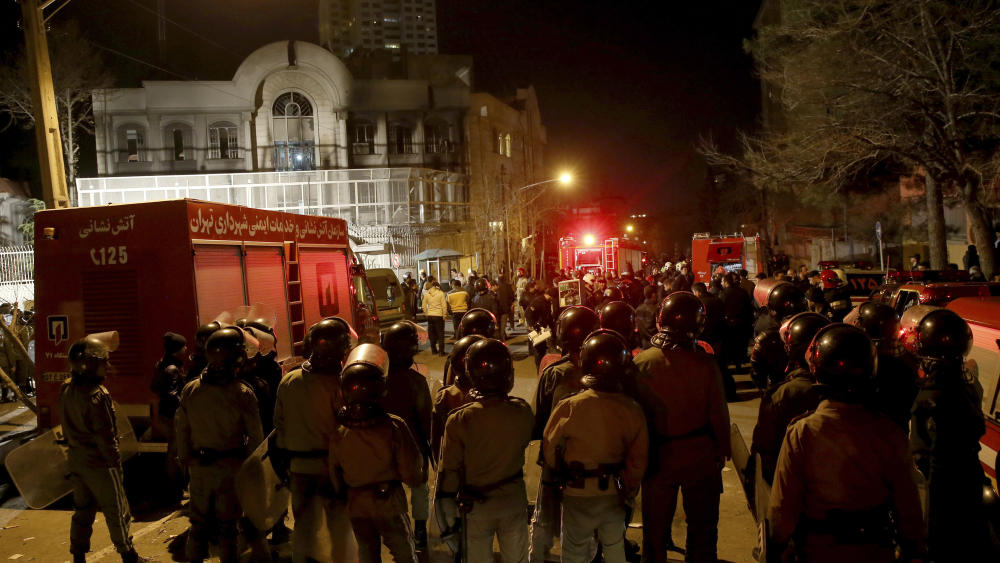Updated 6:20 a.m. ET Sunday
Angry over the execution of Shiite cleric Sheik Nimr al-Nimr by Saudi Arabia, protesters stormed parts of the Saudi embassy in Tehran Saturday night before being cleared out by security forces, NPR’s Peter Kenyon reports.
Videos posted online appeared to show a Molotov cocktail being hurled through a window at the embassy and flames flaring up, Kenyon says.
The Iranian foreign ministry called on people not to gather at Saudi diplomatic buildings, and Supreme Leader Ayatollah Ali Khamenei said the execution of the cleric Nimr al-Nimr would bring “divine vengeance” down on the Saudi rulers.
Some protesters entered the building but were dispersed by police, ISNA reports, citing Iran’s top police official; the agency also reports that some arrests were made.
As NPR’s Leila Fadel reported on All Things Considered, the execution of 47 people in Saudi Arabia — including Sheikh Nimr al-Nimr, a top Shiite cleric, and three other Shiites — has also sparked protests in Bahrain and in the largely Shiite city of Qatif, Saudi Arabia.
“Shia Muslims are a minority in the Sunni Muslim country of Saudi Arabia,” Leila explains. “And the battle for influence in the region between Sunni Saudi Arabia and Shia Iran has inflamed sectarian tensions.”
Sheikh Nimr al Nimr supported peaceful protests in Saudi Arabia in 2011, Leila notes:
“Saudi Arabia says the executions were to preserve the safety of the kingdom. Those executed were accused of radical ideology, terrorism or criminal plots.
“Besides the Shia Saudi citizens, a Saudi court convicted the 43 others on charges of working with Al Qaeda.”
Iran’s government and Shiite clerics around the region have condemned the executions, as have human rights groups, Leila says.
9(MDA3MTA1NDEyMDEyOTkyNTU3NzQ2ZGYwZg004))
